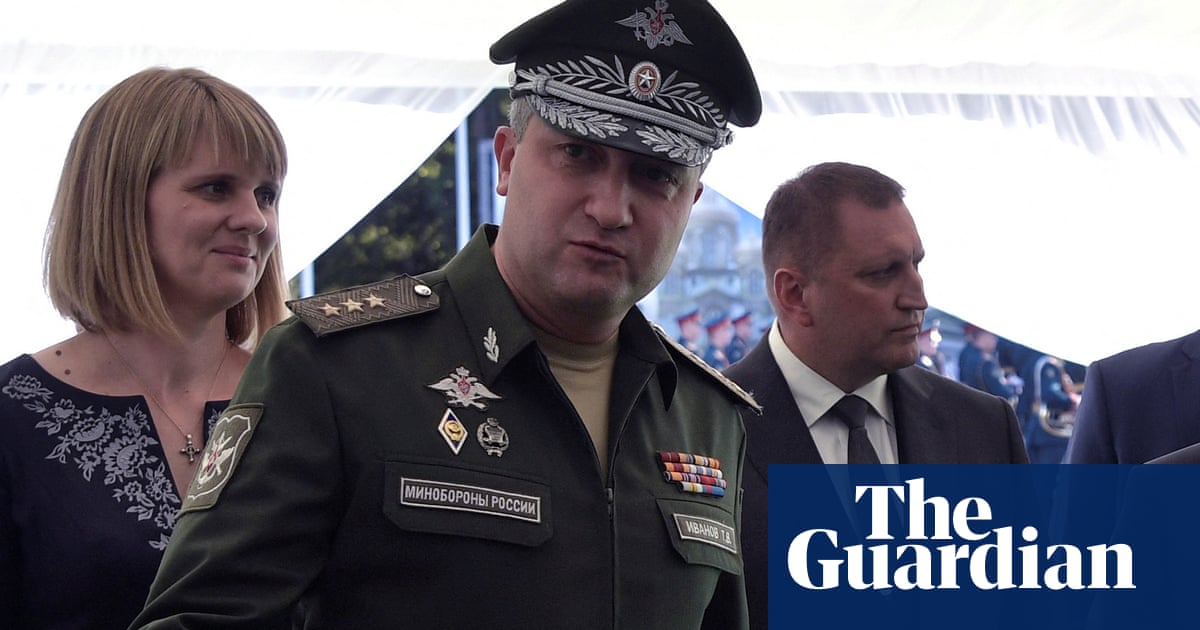
A Russian deputy defence minister has been detained on suspicion of bribe-taking, the country’s top law enforcement agency has said, a rare move amid the offensive in Ukraine.
The investigative committee reported Timur Ivanov’s detention on Tuesday without offering any details of the accusations against him, saying only that he is suspected of taking an especially large bribe – a criminal offence punishable by up to 15 years in prison.
Kremlin spokesperson Dmitry Peskov, quoted by Russian news agencies, said a report on Ivanov’s detention had been presented to President Vladimir Putin. Defence minister Sergei Shoigu had been informed in advance of his detention, he said.
Ivanov, 48, one of 12 deputy defence ministers, was sanctioned by both the US and the EU in 2022, after Russia invaded Ukraine. He worked in companies dealing with fuel and energy and in the Moscow regional government before joining the defence ministry in 2010. He became a deputy minister in 2016.
Forbes magazine has listed him as one of the wealthiest men in Russia’s security structures.
News outlet RBK posted a picture of him attending a meeting of ministerial officials earlier on Tuesday chaired by Shoigu.
Russian news reports said Ivanov was likely the most senior Russian official to face such charges since Moscow launched its invasion of Ukraine in February 2022.
He was the subject of an investigation published in 2022 by the banned Anti-Corruption Foundation – created by late opposition leader Alexei Navalny.
It said the deputy minister oversaw – and profited from – construction projects in Ukraine’s Mariupol, which fell under Moscow’s control after a months-long siege.
According to the probe from the organisation, which has been banned in Russia for alleged “extremism”, the minister divorced his wife to allow her to bypass EU sanctions.
“Today is a good day,” Maria Pevchikh, the head of investigations at the foundation, said on social media.
Like most high-profile opposition figures, Pevchikh was forced into exile by the Kremlin’s repression.
Most of the opposition remaining in Russia is behind bars.
Navalny, who galvanised masses by exposing corruption under Putin, died in prison in mid February.
Reuters, Associated Press and Agence France-Presse contributed to this report